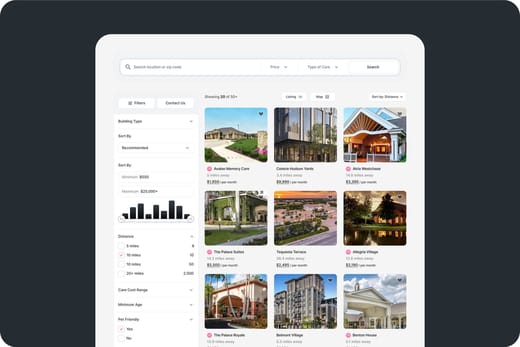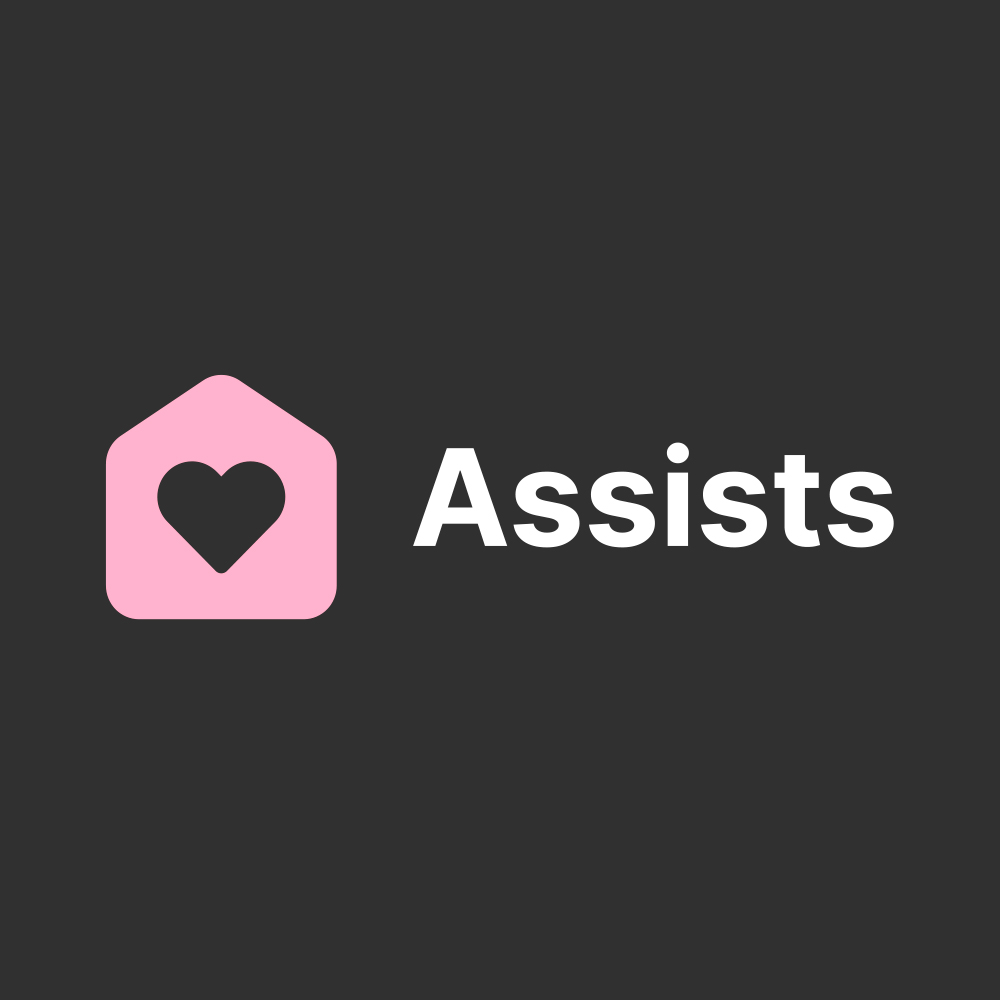Mix of rehab and long-term care
This home supports both short-term rehab and long-term care, with residents staying for a wide range of durations.

We arrange tours, appointments, and even moving support so you don’t have to
Receive the highest quality of care with Salem Hills Rehabilitation and Healthcare, a distinguished community set in the serene setting of Purdys, NY, offering long-term care, post-acute rehabilitation, and nursing services. Prioritizing residents’ well-being, the community provides exceptional care and assistance tailored to their needs to ensure comfort and safety. As a Medicare-certified community, residents experience the highest quality of care while staying on a budget.
Residents are not only well-cared for but are also happy and socially engaged, with the community’s variety of fun recreational activities and entertainment options. To keep residents healthy, meals are carefully curated by dietitians to meet dietary needs and preferences. Pain management, respite care, and social work services are also available to ensure a maintenance-free living. The community is ideal for those looking to recover from a condition and receive supplementary care to enhance their living conditions, especially with its comprehensive care and extensive amenities.
Offers a balance of services and community atmosphere.
That suggests steady demand, but availability may be limited.
This home supports both short-term rehab and long-term care, with residents staying for a wide range of durations.
44% of new residents, usually for short-term rehab.
28% of new residents, often for short stays.
28% of new residents, often for long-term daily care.
 The portion of the home's budget spent on staff, including nurses, caregivers, and other employees who support care and operations.
The portion of the home's budget spent on staff, including nurses, caregivers, and other employees who support care and operations.
 All remaining costs needed to run the home, such as food, utilities, building maintenance, supplies and administrative expenses.
All remaining costs needed to run the home, such as food, utilities, building maintenance, supplies and administrative expenses.
Salem Hills Rehabilitation and Healthcare is legally operated by Salem Acquisition I, LLC (For Profit).
Accept Medicaid: Yes
Housing Options: Private / Shared Rooms
Building Type: 3-story
Dining Services
Beauty Services
Housekeeping Services
Recreational Activities
Exercise Programs
In New York, the Department of Health, Office of Aging and Long Term Care performs unannounced onsite inspections to monitor compliance with state and federal healthcare regulations.
New York average: 9 inspections
Formal expressions of dissatisfaction or concern made by residents, or their families regarding various aspects of the care, services, and environment provided.
New York average: 23 complaints
Citations indicate regulatory violations. A higher number implies the facility had several areas requiring improvement.
New York average: 25 citations
Penalties or interventions imposed by state regulators when facilities do not comply with quality, safety or regulatory standards.
December 9, 2020: Stipulation & Order #NH-21-020
Other Services
Care Homes
Nursing Homes 24/7 care needed
Care Homes
Nursing Homes 24/7 care needed
Nursing Home 24/7 care needed
Care Homes
Respite Care
Care Homes
Nursing Homes 24/7 care needed
Care Homes
Nursing Homes 24/7 care needed
0.8 miles from city center
539 NY-22, Purdys, NY 10578
Add your location
Source: CMS Payroll-Based Journal (Q2 2025)
| Role ⓘ | Count ⓘ | Avg Shift (hrs) ⓘ | Uses Contractors? ⓘ |
|---|---|---|---|
| Registered Nurse | 15 | 7.7 | Yes |
| Licensed Practical Nurse | 12 | 8.7 | No |
| Certified Nursing Assistant | 38 | 9.4 | No |
| Role ⓘ | Employees ⓘ | Contractors ⓘ | Total Staff ⓘ | Total Hours ⓘ | Days Worked ⓘ | % of Days ⓘ | Avg Shift (hrs) ⓘ |
|---|---|---|---|---|---|---|---|
| Certified Nursing Assistant | 38 | 0 | 38 | 19,674 | 91 | 100% | 9.4 |
| Licensed Practical Nurse | 12 | 0 | 12 | 5,914 | 91 | 100% | 8.7 |
| Registered Nurse | 13 | 2 | 15 | 5,106 | 91 | 100% | 7.7 |
| Other Dietary Services Staff | 17 | 0 | 17 | 4,169 | 91 | 100% | 7.5 |
| Physical Therapy Assistant | 6 | 2 | 8 | 1,780 | 68 | 75% | 6 |
| Respiratory Therapy Technician | 5 | 0 | 5 | 1,462 | 76 | 84% | 7.2 |
| Administrator | 2 | 0 | 2 | 690 | 62 | 68% | 7.5 |
| Qualified Social Worker | 0 | 4 | 4 | 494 | 67 | 74% | 7.2 |
| Speech Language Pathologist | 3 | 0 | 3 | 476 | 61 | 67% | 7.4 |
| Physical Therapy Aide | 2 | 0 | 2 | 447 | 61 | 67% | 7.3 |
| Mental Health Service Worker | 2 | 0 | 2 | 422 | 56 | 62% | 7.2 |
| Nurse Practitioner | 1 | 0 | 1 | 420 | 56 | 62% | 7.5 |
| Occupational Therapy Aide | 2 | 0 | 2 | 341 | 45 | 49% | 7.3 |
| Qualified Activities Professional | 6 | 0 | 6 | 294 | 91 | 100% | 1.8 |
| Other Physician | 5 | 0 | 5 | 274 | 65 | 71% | 3.8 |
| RN Director of Nursing | 1 | 1 | 2 | 248 | 61 | 67% | 3.9 |
| Clinical Nurse Specialist | 0 | 2 | 2 | 107 | 17 | 19% | 5.6 |
| Occupational Therapy Assistant | 0 | 3 | 3 | 62 | 16 | 18% | 2.9 |
| Nurse Aide in Training | 1 | 0 | 1 | 45 | 6 | 7% | 7.5 |
| Medical Director | 0 | 1 | 1 | 39 | 39 | 43% | 1 |
| Feeding Assistant | 1 | 0 | 1 | 20 | 5 | 5% | 4 |
Source: CMS Health Citations (May 2019 – May 2024)
| Date | Severity ? | Category | Tag | Status |
|---|---|---|---|---|
| May 16, 2024 | D | Infection Control | F0880 | Corrected |
| May 16, 2024 | D | Quality of Care | F0684 | Corrected |
| May 16, 2024 | D | Quality of Care | F0686 | Corrected |
| May 16, 2024 | D | Quality of Care | F0688 | Corrected |
| May 16, 2024 | E | Quality of Care | F0689 | Corrected |
| May 16, 2024 | D | Care Planning | F0656 | Corrected |
| May 16, 2024 | D | Resident Rights | F0550 | Corrected |
| May 16, 2024 | D | Resident Rights | F0558 | Corrected |
| May 31, 2019 | D | Pharmacy | F0756 | Corrected |
| May 31, 2019 | D | Quality of Care | F0684 | Corrected |
| May 31, 2019 | D | Care Planning | F0656 | Corrected |
| May 31, 2019 | D | Care Planning | F0657 | Corrected |
Source: CMS Long-Term Care Facility Characteristics (Data as of Jan 2026)
Active councils help families stay involved in care decisions and facility operations.
CMS quality measures assess care quality for long-stay and short-stay residents. Lower percentages generally indicate better outcomes for most measures.
Source: CMS Nursing Home Compare (Data as of Jan 2026)
Composite score based on pressure ulcers, falls with injury, weight loss, walking ability decline, and ADL decline
Composite score based on ADL decline, walking ability decline, and incontinence
Measures for residents who stay 101 days or more. For most measures, lower percentages indicate better care.
Measures for residents who stay 100 days or less (typically rehabilitation patients).
Care Cost Calculator: See Prices in Your Area
Nursing Home Data Explorer
Don’t Wait Too Long: 7 Red Flag Signs Your Parent Needs Assisted Living Now
The True Cost of Assisted Living in 2025 – And How Families Are Paying For It
Understanding Senior Living Costs: Pricing Models, Discounts & Financial Assistance

We help families find affordable senior communities and unlock same day discounts, Medicaid, and Medicare options tailored to your needs.
Contact us Today
Touring a community? Use this expert-backed checklist to stay organized, ask the right questions, and find the perfect fit.
We'll send you a PDF version of the touring checklist.
